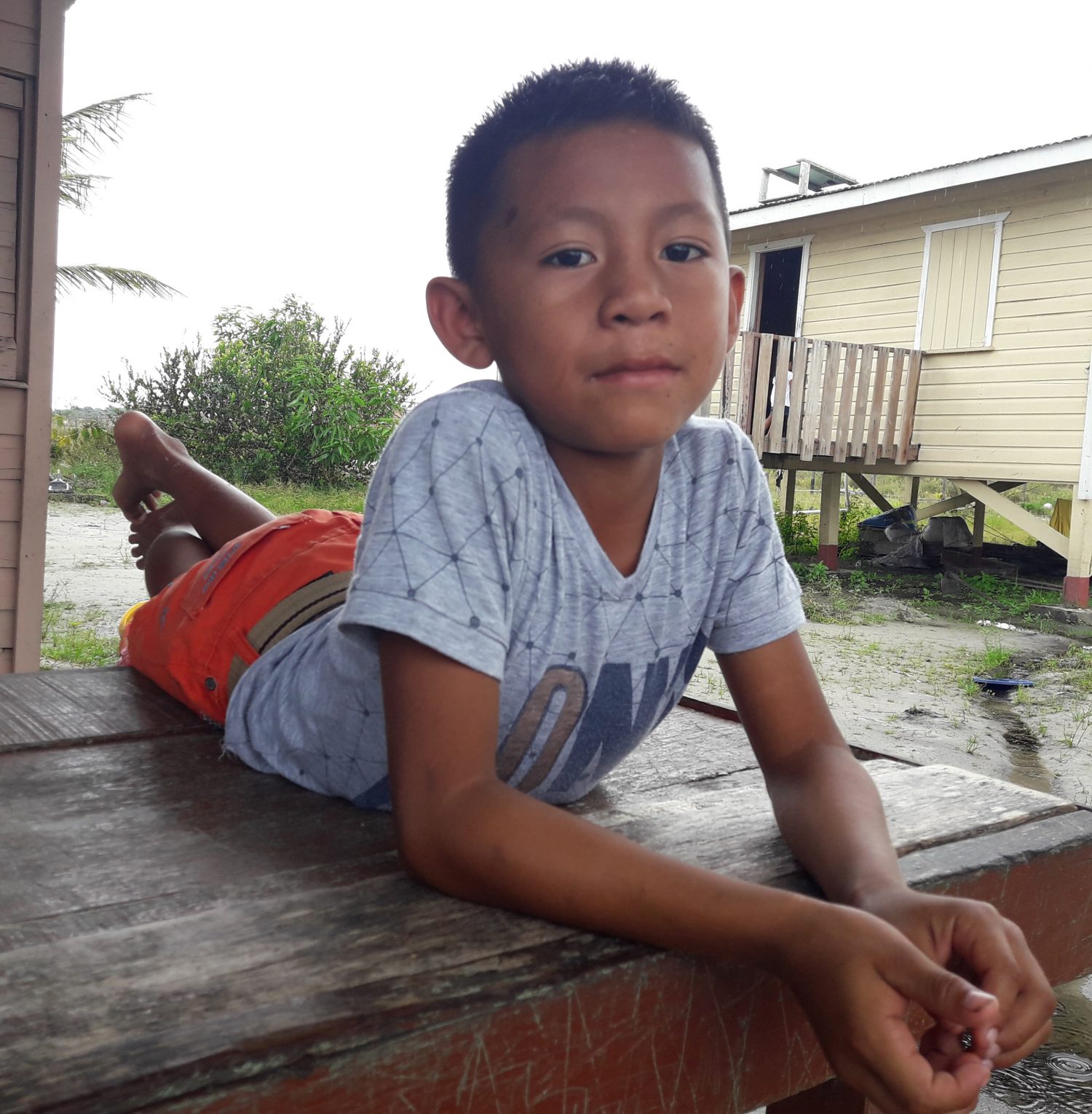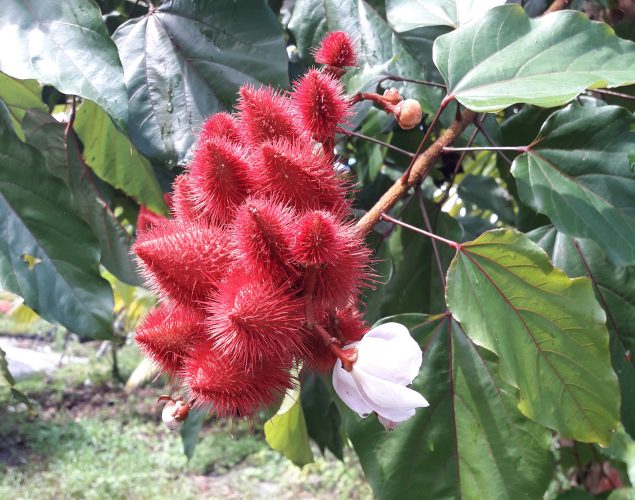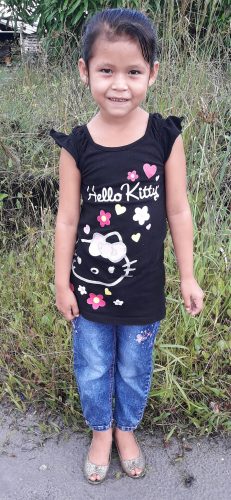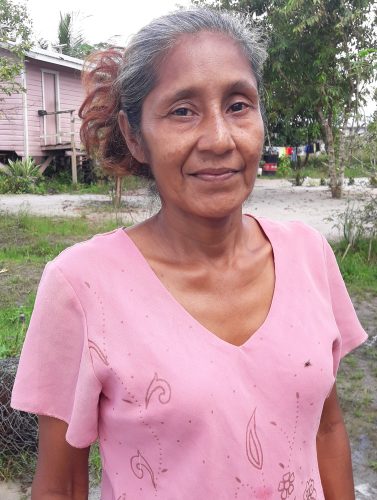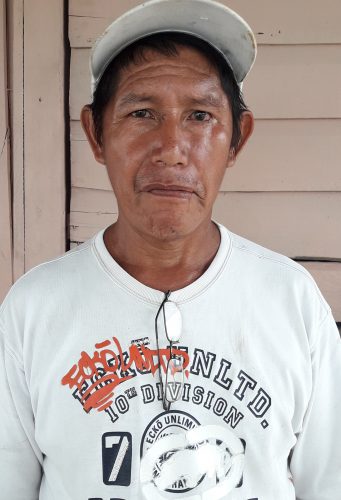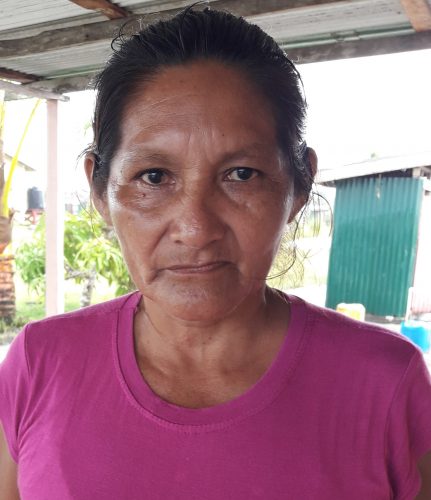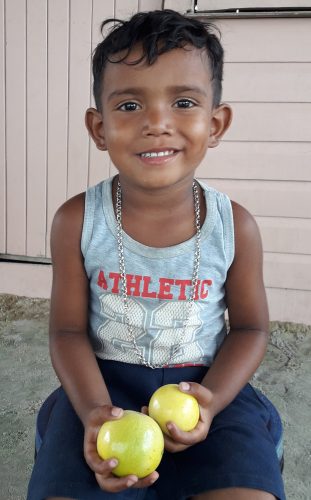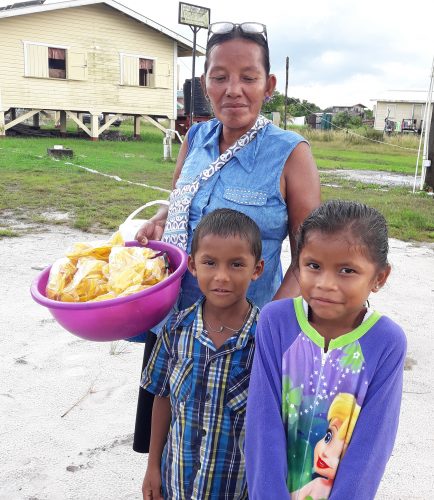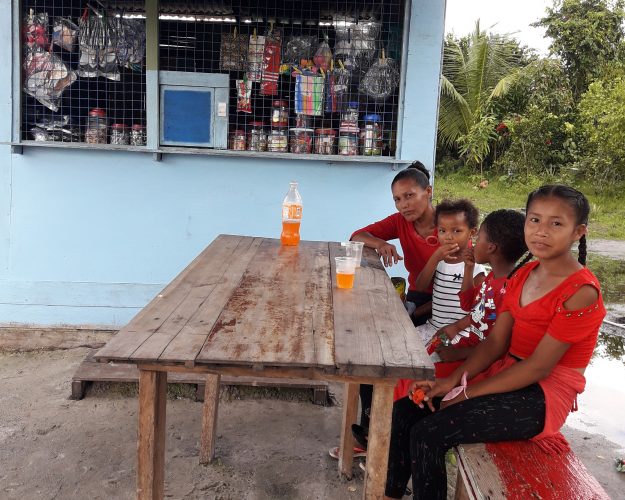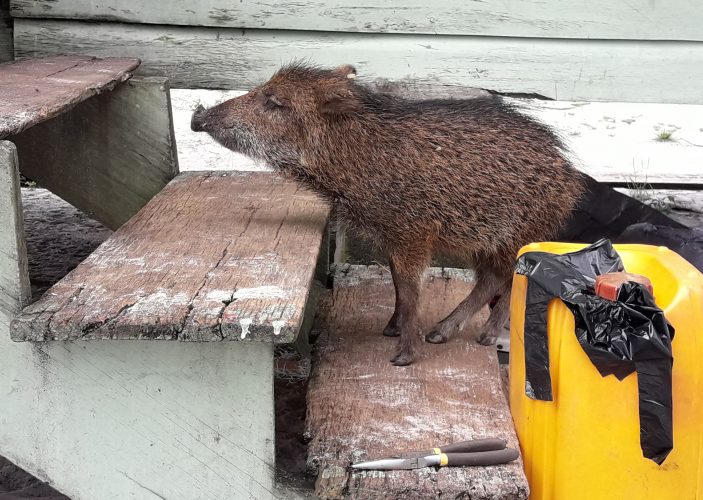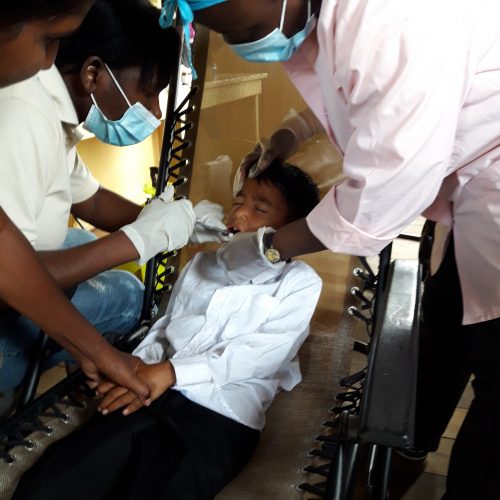Swan, situated off the Linden/Soesdyke Highway, is an Amerindian community that is home to approximately 415 people. It is mainly accessed through the Marudi Road though there are shortcut trails leading to it.
The village chairman is Norbert Charles, who was appointed interim chairman in 2012 and elected in 2015. He is the first resident to have moved to Swan; his home village was Kamwatta in the North West District, Region One. Many Swan residents are from Region one.
Prior to moving, Charles worked as an oil palm harvester at the Wauna Estate. He was sent for training at Dora in the Demerara River and later he and his family settled in a squatting area just beyond One Mile. His was one of 27 families who squatted here and later approached the then Ministry of Amerindian Affairs for assistance. Then Minister Carolyn Rodrigues approached the Guyana Lands and Surveys Commission in 2004 and Swan—a 40-acre plot—was identified as the area for them. Charles and his family took up residence in 2007. The other 26 families followed in 2011 after benefiting from Food for the Poor houses. Over time, 52 more families joined them and the village is now packed to capacity. Besides those arriving from the North West District, there are families who would have arrived from Morakobai in Mahaicony, Region Five and Georgetown. Of the 79 families who now reside in Swan, 65 of their homes were built by Food for the Poor. Houses have a single solar panel that is barely enough to provide lights.
In the early days, villagers depended on the rain and the creeks around. A well was started in 2012 but it was never completed. Sometime later a second well was dug, and this currently provides limited water. Up to ten families have access to the water that flows through their taps for at most one hour at very low pressure.
There was a plan for each family to have 90 gallons available to them, but according to Charles, families receive less. It was said that the Guyana Water Incorporated (GWI) took samples of the water for testing, but residents never got the results and are still unsure whether the water is good for consumption. Nevertheless, some villagers drink the water, but most say they depend on the rain for water to drink. In the dry season, when the creek stops flowing, they buy drinking water from residents in Kuru Kururu and walk to the larger Marudi Creek to get water for washing and bathing.
Charles believes that Swan’s proximity to Georgetown means that villagers have access to better health care and better education for their children.
Many of the people relied on farming in the past and a few of them have kitchen gardens. They have made a request to the Ministry of Indigenous Affairs for access to more land so that they can farm. The process is ongoing.
At present, residents are employed in construction, coal mining, sawmilling, on poultry farms and some head to the gold mines. About 20 persons are benefiting from the Hinterland Employment and Youth Service programme and are being trained in various skills; they will be graduating next month to enter a job market that is problematic.
According to Charles, “We have people taking advantage of the men here. In saw work and gold work, they [the employers] take a long time to pay you and then when they pay you, they paying you in small, small parts. Because of this, persons are having difficulty sending their children to school.”
Many of the children attend nursery and primary schools in Kuru Kururu, a 45-minute walk away through shortcuts; most children take the bus. Other children attend schools in Timehri, Soesdyke and Friendship.
The villagers still struggle, Charles said. Sometime back, he said, GWI officials, including CEO Dr Richard Van West-Charles promised to help upgrade the water pressure. The village was given two more solar panels to power the well but that has not helped much. At the last Toshaos Council, Minister of Communities Ronald Bulkan also made promises to assist with the well, which are still to be realized.
Though Swan residents depend on the rain for drinking water, the area is susceptible to flooding and is in dire need of some sort of drainage system.
Swan’s Vice Chairman Cynthia Singh is from Hotoqui in the Kumaka River in Region One. Hers was among the original 27 families to reside at Swan.
“Here is far better than Hotoqui where we had to move by boat,” she said. “Transportation is easier and there are more job opportunities. What we want to have is a farm for us. We asked … for an extension of the land… but we’re waiting years now,” the woman said
Singh previously worked on a cabbage farm in Kuru Kururu but has been out of a job since the beginning of this year owing to the heavy rainfall. Her husband and son work in the interior and are usually away for months at a time.
Singh said the village needs improvements in its water and electricity systems and proper roads. She said villagers would like to benefit from a health centre, which would serve not just them but also the village of Sandville situated just behind.
She requested more police patrols in the area. A few nights prior to her speaking with this newspaper, she said, thieves had broken into a home thinking the family was not there and when surprised by the family escaped without taking anything. Just a week prior to that incident, a woman who not at home had her television, music set, generator, solar panels and battery stolen.
Shopkeeper Barbara Debideen hails from Aruka River in the North West District. In order to cool the beverages she sells, Debideen makes a daily trip to Soesdyke for ice at a cost of between $2,100 and $2,600 return, including the ice. She sells meat birds as well.
She is bothered by the water situation. There is either too little, which means they cannot cook or bathe as they would like; or too much, which sees them wading through sometimes a foot of it. Debideen has a pond behind her lot from which she can get water at times.
She is also bothered by the numerous robberies in the area. Two Tuesdays ago, her father’s home was broken into and items were stolen, she said.
“I would like Swan develop so we can have water and lights and better roads. We can bathe as we like and keep our greens in the fridge. We can have lights, which should help with reducing thieves and if the police can patrol more, it would make us more at ease. In case of the lights, our children will be able to better study at nights,” she said.
At the time I visited, though not much rain had fallen, parts of the village were flooded; water filled the huge potholes along the streets. A small bush hog, clearly a pet, was climbing the stairs to a residence. A young boy said the animal belonged to his aunt.
In another part of the village, a church was under construction by the Maranatha Volunteers Organisation and at the Trinity Community Centre, villagers were waiting their turn to access the free dental service on offer by a team from the Madison Mission Seventh Day Adventist Church of Alabama.
